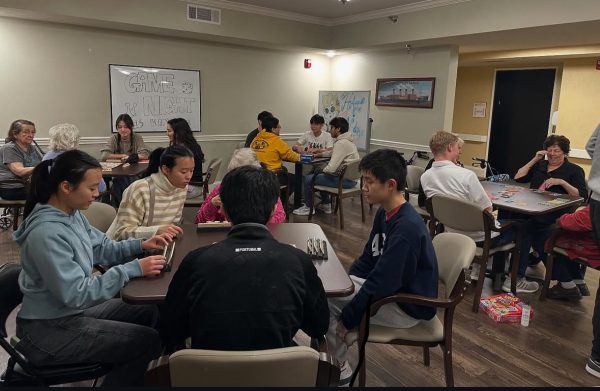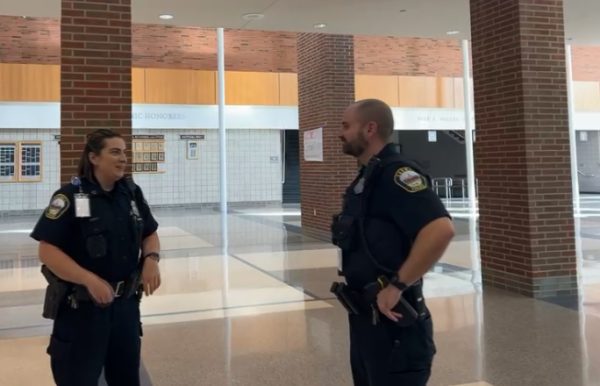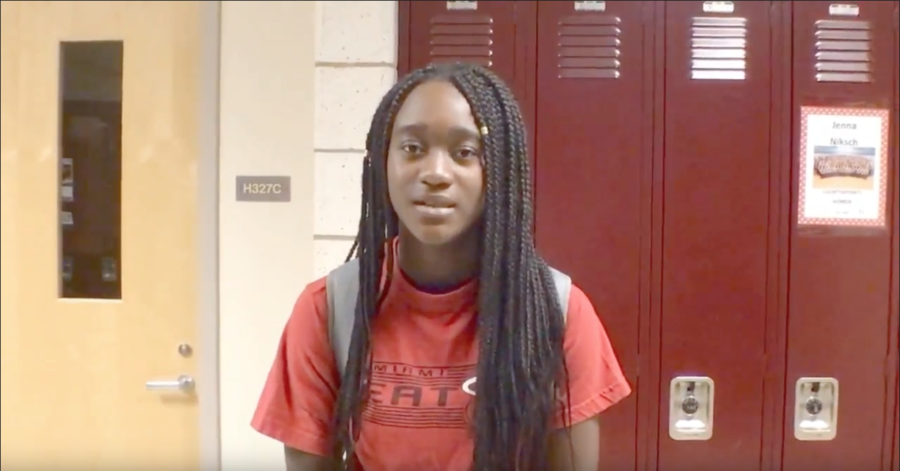Expanding Horizons: Despite the controversy that continues to surround the implementation of ethnic classes in a secondary education setting, CHS will offer an African Studies elective in the 2017-2018 school year
In the 2017-2018 school year, for the first time in the school’s history, CHS will offer a semester-long African studies class for grades 10-12. According to African History and Culture Club member and senior Tomi Taiwo, as a first generation Nigerian-American, she appreciates that CHS is moving towards diversity in its curriculum.
“I am African-American and my parents are from Nigeria. I think learning African history is important since there are so many different backgrounds and countries in the world and it’s good to be aware and informed about it,” Taiwo said.
Taiwo is not alone with her sentiment. As early as the 1900s, civil rights leaders such as W.E.B Du Bois have lobbied for schools to offer an African studies class with little to no success. Despite the strides made towards cultural inclusion in our modern-day society, controversy continues to exist around the implementation of ethnic studies classes. While states such as Arizona have banned ethnic studies classes due to the perceived misrepresentation taught and others like California have mandated their availability in all high schools by 2019, recently, there hasn’t been a clear consensus on their importance within legislation. However, according to African-American and sophomore Jasmine McWilliams, instilling an African studies class for high schoolers should be a given.
“CHS has (a student population) that is mostly white, which is fine, but it is good to educate the majority on the minority. The (African studies) class would be a good class to learn about other heritages and other cultures,” McWilliams said.
The lack of a strong emphasis on African history within the current school system in the United States, according to McWilliams, has also furthered the importance of offering this class. Her sentiment is furthered by a 2015 study conducted by the National Council of the Social Studies, which found that the practice of ignoring or misrepresenting black history was all too common in the modern-day educational system.
“African-Americans and black people, in general, have played a huge part in this country. The slaves built this country, so it is important to know about their heritage because all we learn about in school is European history,” McWilliams said. “I think it is important that people are educated on other cultures.”
U.S. history teacher Kenneth Browner, who is one of two teachers who will teach the class, stated that although the curriculum for the class is still in the works, he hopes the class will give new insight on the role of Africans in the global society.
“It gives us the opportunity to focus a little bit more on Africa and how the African people helped shape the American continent,” Browner said.
Taiwo also added that she believes that this class will aid in alleviating stereotypes against African-Americans that is all present in not only the media, but society as a whole.
“I think there are a few stereotypes on how African-Americans are not as intelligent as an average person and are dangerous,” Taiwo said. “We can overcome that by showing them that we are also on top of society too.”
McWilliams said that the stereotypes can also be expanded to the behaviors of African-Americans as well.
“I think that there are a lot of stereotypes that black people are ratchet, or scary or in gangs or are violent and they don’t have hair and stuff like that,” McWilliams said. “I think this class will help alleviate a lot of concerns and as well as educate them on this so we don’t have to deal with stereotypes that don’t make sense.”
In addition to alleviating stereotypes, implementing an ethnic studies may be beneficial to the greater student body as a whole, according to a 2016 study conducted by Stanford University. The study found that the implementation of an ethnic studies class into a high school curriculum improves general attendance rate and graduation rates among high schoolers. Taiwo believes that these findings, along with the increased intercultural connections that constitute the globe, necessitate the class to be implemented in schools all across the state, and even the nation.
“I believe that other schools should follow in Carmel’s lead by incorporating other classes and not just ones only about African-American history, (but other minority groups as well.),” Taiwo said. “They could even integrate Chinese-American and Indian-American history classes. This would allow for more diverse knowledge among Indiana schools, helping them to further their knowledge about life and others around them.”
Watch a video about CHS diversity: https://www.youtube.com/watch?v=SOSUq0qFC04
Your donation will support the student journalists of Carmel High School - IN. Your contribution will allow us to purchase equipment and cover our annual website hosting costs.

































![AI in films like "The Brutalist" is convenient, but shouldn’t take priority [opinion]](https://hilite.org/wp-content/uploads/2025/02/catherine-cover-1200x471.jpg)









































![Review: “The Immortal Soul Salvage Yard:” A criminally underrated poetry collection [MUSE]](https://hilite.org/wp-content/uploads/2025/03/71cju6TvqmL._AC_UF10001000_QL80_.jpg)
![Review: "Dog Man" is Unapologetically Chaotic [MUSE]](https://hilite.org/wp-content/uploads/2025/03/dogman-1200x700.jpg)
![Review: "Ne Zha 2": The WeChat family reunion I didn’t know I needed [MUSE]](https://hilite.org/wp-content/uploads/2025/03/unnamed-4.png)
![Review in Print: Maripaz Villar brings a delightfully unique style to the world of WEBTOON [MUSE]](https://hilite.org/wp-content/uploads/2023/12/maripazcover-1200x960.jpg)
![Review: “The Sword of Kaigen” is a masterpiece [MUSE]](https://hilite.org/wp-content/uploads/2023/11/Screenshot-2023-11-26-201051.png)
![Review: Gateron Oil Kings, great linear switches, okay price [MUSE]](https://hilite.org/wp-content/uploads/2023/11/Screenshot-2023-11-26-200553.png)
![Review: “A Haunting in Venice” is a significant improvement from other Agatha Christie adaptations [MUSE]](https://hilite.org/wp-content/uploads/2023/11/e7ee2938a6d422669771bce6d8088521.jpg)
![Review: A Thanksgiving story from elementary school, still just as interesting [MUSE]](https://hilite.org/wp-content/uploads/2023/11/Screenshot-2023-11-26-195514-987x1200.png)
![Review: "When I Fly Towards You", cute, uplifting youth drama [MUSE]](https://hilite.org/wp-content/uploads/2023/09/When-I-Fly-Towards-You-Chinese-drama.png)
![Postcards from Muse: Hawaii Travel Diary [MUSE]](https://hilite.org/wp-content/uploads/2023/09/My-project-1-1200x1200.jpg)
![Review: "Ladybug & Cat Noir: The Movie," departure from original show [MUSE]](https://hilite.org/wp-content/uploads/2023/09/Ladybug__Cat_Noir_-_The_Movie_poster.jpg)
![Review in Print: "Hidden Love" is the cute, uplifting drama everyone needs [MUSE]](https://hilite.org/wp-content/uploads/2023/09/hiddenlovecover-e1693597208225-1030x1200.png)
![Review in Print: "Heartstopper" is the heartwarming queer romance we all need [MUSE]](https://hilite.org/wp-content/uploads/2023/08/museheartstoppercover-1200x654.png)







